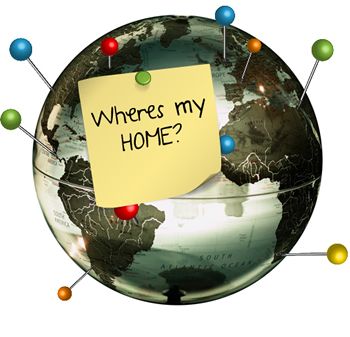What it means to be a “third culture kid”
Third culture kids are a growing population in the world. As one myself, I share my experiences as a TCK.
*Disclaimer: this article was not written to brag about my life or what I’ve done, it is simply written to share my experiences and what it means to be a third culture kid.
The term “third culture kid” is both informal and loosely defined. A “third culture kid” or TCK is usually defined as someone who has lived a majority of their developmental years outside of their parent’s or native culture.. TCKs are usually unique because they are able to blend their home culture with the world around them, they tend to be highly adaptable and this is where the term TCK comes. Created by American Sociologist Ruth Hill Useem, TCKs create a third culture from the mix hence the name.
One of the things TCKs hate being asked is, “where are you from?”. As a TCK myself, this very dreadful question is quite difficult to answer as I now associate myself with so many places and so many cultures. I’ve lived on three different continents while each of my family members have all been born on different ones and have encountered well over 100 nationalities, so it’s safe to say I’ve been exposed to the international community. To answer the question, I wouldn’t say there is any set location I can say I’m from, as other TCKs would respond. I could answer with the places I’ve lived in, or the nationalities of my parents or every place I’ve been to.

Explaining my life story to others usually shocks the listener. It usually begins with, “Where are you from? I’ve never seen anyone quite like you before”, to which I respond with: “Well… my mother is French and my father is Indian but they’ve lived around 20 years in the United States where I was born and grew up for eight years but then we moved to South Africa where my sister was born and stayed there for four and a half years before moving onto Vietnam for three years and then returning to the United States where we are currently all in the meanwhile visiting all of the countries in each region of where we lived or that of where my parent’s home country is. Before you ask, I would say my favorite visit was a safari in the Okavango Delta in Botswana or possibly the Angkor Wat in Cambodia. I take a bit of everything with me but that’s about where I would say I’m from”. The person I’m speaking to normally proceeds to drop their jaw unless they’re a global citizen themselves and a conversation of our experiences sparks from this.

The concept of being a TCK is both a blessing and a curse. While you are thoroughly exposed to the different sets of people around the world and encounter all sorts of magnificent things, a sense of identity becomes hard to grasp and your home is figuratively and to some literally an RV trailer. I have no regrets moving around (even though it wasn’t my choice), but my past birthday reminded me that bits of me are everywhere when I received wishes twelve hours prior to my birthday in the United States from Asia. Moving around is of course what comes with being a TCK. With this, you break a lot of bonds/friendships and your lifestyle is completely ruptured which is easily the most difficult part about being a TCK. Nothing is permanent and you can’t take what you have for granted; however, I suppose this would apply to anything in life.
If there’s anything I could stress to people as a TCK, it would be to travel. Surprising isn’t it? On a serious note, this completely coincides about what is good about being a TCK because being able to travel and meeting different types of people is the best part. Travelling allows you to be more culturally sensitive of others around you. With an ever globalizing world, this is becoming especially important in order to refrain from offending those around you. By learning more about other people’s cultures, you may even be able to relate to them more and integrate aspects of their culture into yours. Having global skills and being able to interact with a variety of people is something companies and employers are beginning to look into even more, as the world continues to culturally diffuse. With a broader perspective, you’re able to view the world in a much different manner, one that especially can’t be taught in books and you can discover a newfound appreciation. With my own travels, I am extremely grateful for my opportunities and wouldn’t have it any other way. If there is anything to take from this, travel wherever and whenever you can!






